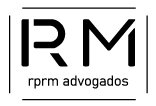Best Conveyancing Lawyers in Porto
Share your needs with us, get contacted by law firms.
Free. Takes 2 min.
Free Guide to Hiring a Real Estate Lawyer
List of the best lawyers in Porto, Portugal
About Conveyancing Law in Porto, Portugal
Conveyancing in Porto, Portugal refers to the legal process of transferring property ownership from one party to another. This process covers all legal and administrative work involved in preparing documents, managing contracts, and registering new ownership. Portuguese property law has specific requirements and procedures for both buyers and sellers, making it vital to understand local rules and practices. In Porto, the conveyancing process generally involves notaries, solicitors, and government authorities, ensuring that transactions are legally compliant and safe for all parties involved.
Why You May Need a Lawyer
There are several scenarios where hiring a conveyancing lawyer in Porto is essential. You may need legal help if you are:
- Purchasing a property and unsure about the legality of the title or the seller's authority to sell
- Selling a property and want to ensure all documentation is accurate and legally binding
- Encountering disputes with co-owners, neighbors, or developers involving land or property boundaries
- Dealing with inheritance and succession issues involving property in Porto
- Unsure about local taxes, fees, or the steps required to register a property transaction
- Faced with unfamiliar contract clauses or foreign-language legal documents
- Need assistance verifying building or planning permissions for construction or renovations
A lawyer with experience in conveyancing can protect your investment, clarify legal jargon, and help you avoid costly mistakes during property transactions.
Local Laws Overview
Porto follows national Portuguese property laws, with specific local application. Below are some key aspects of local laws relevant to conveyancing:
- All property sales must be formalized by a public deed (escritura pública) and registered at the Land Registry Office (Conservatória do Registo Predial)
- Foreign buyers are permitted to purchase property in Porto, but must obtain a Portuguese Tax Number (Número de Identificação Fiscal)
- Due diligence is crucial, as liens, charges, or encumbrances may exist on a property; these are checked by examining the Land Registry and Tax Office records
- A preliminary contract (Contrato de Promessa de Compra e Venda) is commonly used to secure the sale, with a deposit typically required
- Buyers and sellers are both responsible for certain taxes and fees, including the Municipal Property Transfer Tax (IMT), Stamp Duty, notary fees, and registration costs
- The legal process often involves reviewing planning statuses, urban licensing, and any applicable condominium rules for apartments or shared buildings
- Notaries play a key role in authenticating documents and ensuring all legal requirements are met before registration is finalized
Frequently Asked Questions
What is the role of a conveyancing lawyer in Porto?
A lawyer helps review contracts, conducts due diligence on property titles, checks for outstanding debts, manages communication with notaries, and ensures all legal requirements are satisfied during the property transaction process.
Can foreigners buy property in Porto?
Yes, foreigners can freely buy property in Porto. However, they must obtain a Portuguese Tax Number and may need additional advice on taxation and inheritance laws.
What documents are needed to buy property?
Key documents include identification, Portuguese Tax Number, property Land Registry certificate, Tax Office certificate, energy certificate, and, if applicable, proof of building or planning permits.
What is a public deed, and why is it important?
A public deed (escritura pública) is the official document that formalizes the transfer of property ownership in the presence of a notary. It is required by law for property transactions in Porto.
What taxes apply when buying property in Porto?
The main taxes are the Municipal Property Transfer Tax (IMT), Stamp Duty (Imposto do Selo), and annual Municipal Property Tax (IMI).
Do I need a survey before buying property?
Physical surveys are not compulsory by law but are highly recommended to check for structural or legal issues, especially in older properties or renovations.
How long does the conveyancing process take?
The entire process can take several weeks to a few months, depending on due diligence, complexity of the transaction, and administrative processing times.
What happens if a problem is found with the property title?
If issues like debts, legal disputes, or encumbrances are discovered, your lawyer can help resolve them or renegotiate terms, and you may withdraw from the transaction under certain conditions.
Can the process be completed remotely?
Yes, it is possible to complete much of the process remotely, especially with a power of attorney. Many legal documents and contracts can be signed via your lawyer or a trusted representative.
Is it mandatory to use a lawyer?
While not legally mandatory, especially for Portuguese nationals, it is highly recommended to engage a lawyer to prevent legal issues and ensure full compliance with local laws and procedures.
Additional Resources
If you need more information or assistance regarding conveyancing in Porto, consider reaching out to the following resources and organizations:
- Portuguese Bar Association (Ordem dos Advogados)
- Portuguese Notaries Association (Colégio Notarial de Portugal)
- Land Registry Office (Conservatória do Registo Predial) in Porto
- Tax Office (Serviço de Finanças) in Porto
- Municipality of Porto (Câmara Municipal do Porto) for local planning and licensing information
- Consumer Protection Association (DECO) for impartial information on property transactions
Next Steps
If you are planning to buy or sell property in Porto or are facing legal concerns about a real estate transaction, the best first step is to consult with a lawyer specializing in conveyancing. Gather all available documentation, define your objectives, and seek qualified legal advice early in the process. By working with a professional, you will reduce risks and ensure your transaction complies with local laws. Contact local bar associations, request recommendations from trusted sources, and arrange a consultation to discuss your specific needs before signing any contract or making payments.
Lawzana helps you find the best lawyers and law firms in Porto through a curated and pre-screened list of qualified legal professionals. Our platform offers rankings and detailed profiles of attorneys and law firms, allowing you to compare based on practice areas, including Conveyancing, experience, and client feedback.
Each profile includes a description of the firm's areas of practice, client reviews, team members and partners, year of establishment, spoken languages, office locations, contact information, social media presence, and any published articles or resources. Most firms on our platform speak English and are experienced in both local and international legal matters.
Get a quote from top-rated law firms in Porto, Portugal — quickly, securely, and without unnecessary hassle.
Disclaimer:
The information provided on this page is for general informational purposes only and does not constitute legal advice. While we strive to ensure the accuracy and relevance of the content, legal information may change over time, and interpretations of the law can vary. You should always consult with a qualified legal professional for advice specific to your situation.
We disclaim all liability for actions taken or not taken based on the content of this page. If you believe any information is incorrect or outdated, please contact us, and we will review and update it where appropriate.
















